When we buy our tablets, we often buy them together with other accessories that allow them to stay protected. While most people buy cases for their tablets just moments after buying the tablet, there are some people who also buy screen protectors that are supposed to protect a tablet’s already durable screen. But is a screen protector actually necessary for your tablet?
Screen protectors aren’t necessary if you want to protect your tablet because, as long as taken care of, your tablet’s screen will be just fine. However, if you want to keep your tablet’s screen in the best condition possible for years and years, then screen protectors are very important.
It’s simply a wonder why some people really don’t like screen protectors. While they may not guarantee full protection, they still do offer some benefits that can help protect your tablet. In that sense, while there are some people who might think that screen protectors are inconvenient, you are going to eventually love how screen protectors are able to keep your tablet’s screen almost as good as new for a very long time.
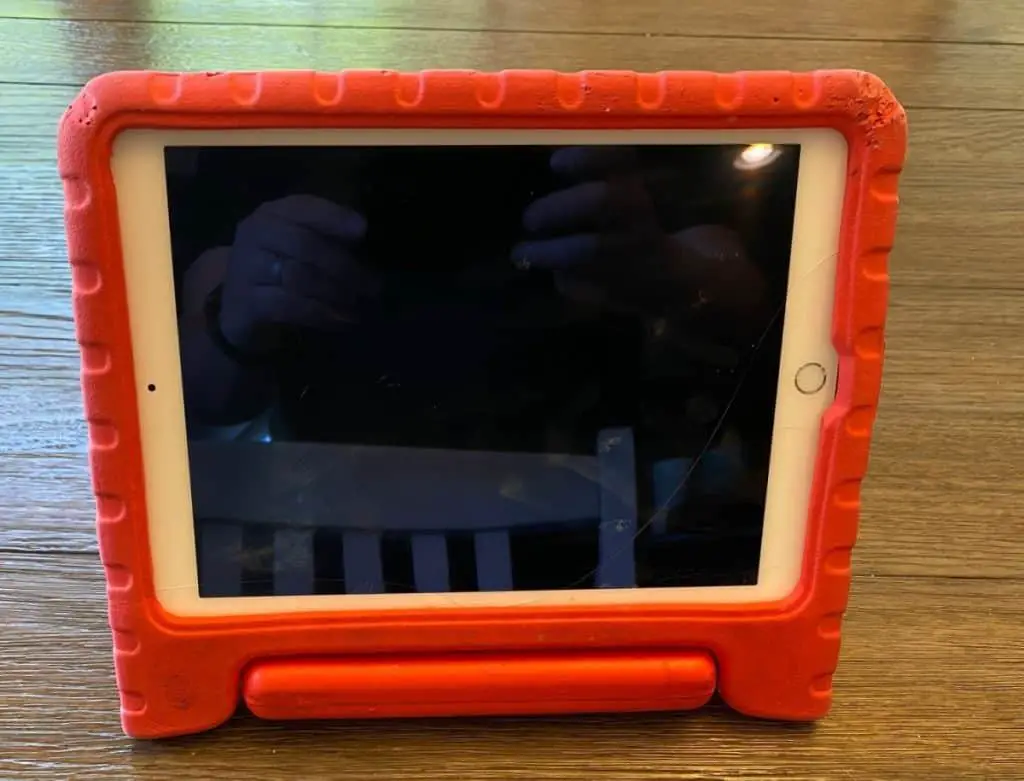
How does a screen protector work?
Tablets are indeed great to have for a wide range of different functions because of the very fact that they are similar to mobile smartphones but are also just as functional as laptops are. That said, there are plenty of different reasons why you may need a tablet. And when you go and get your tablet, it is also very important that you make sure that it is protected well enough from any sort of damage.
So, one of the things people buy right off the bat when they get their tablet is the case because the case is not only there to protect the tablet but it also allows the tablet to become more functional such as when we are talking about cases that can also act as stands or even keyboards.
That said, while cases are indeed almost necessary, one might think that screen protectors are also just as necessary. But before we get to look at whether or not you should get a screen protector, let’s talk more about how screen protectors work so that you will get a bigger picture of why you might want to use them. And different screen protectors work in different ways.
1. PET
Polyethylene terephthalate or PET screen protectors are made from a special kind of plastic that allows the tablet’s screen protector to have a more matte finish. This matted finish protects the tablet’s screen from scratches because the PET screen protector itself is also very scratch-resistant. On top of that, they are also very affordable compared to other screen protectors.
However, the downside to PET screen protectors is that they can eventually discolor to the point that your tablet’s screen would look quite dirty. Meanwhile, PET screen protectors don’t protect your tablet’s screen from impact and are not as effective when it comes to scratches coming from other sources aside from keys or fingernails.
2. TPU
Thermoplastic polyurethane or TPU screen protectors are also similar to PET in the sense that they are plastic-based. But most people regard TPU screen protectors as the superiors of their PET counterparts because they are softer and are more resistant to impact. This means that they are great at protecting your screen from scratches coming from normal use while also providing your tablet with a bit of protection from impact.
However, the bad side of this is that TPU screen protectors are a lot more transparent compared to PET and don’t come with that matted finish that some people might like. And they aren’t exactly great at protecting your tablet screen from impact damage either.
3. Tempered glass
Tempered glass is one of the most popular materials used for constructing screen protectors for phones and tablets alike. These screen protectors are regarded as the best in terms of protecting your tablet’s screen, and that is why they are more expensive than all of the other types of screen protectors. But they are more than worth your investment because they are made from multiple layers of soft silicone that allows your screen to absorb and dissipate impact. Meanwhile, the PET and oleophobic film on top of the glass is also capable of keeping the screen clean and free of scratches.
Then again, tempered glass screen protectors are thicker and heavier than other types of screen protectors. This may come as an inconvenience to some people who want to use special cases that may not fit when your tablet has a tempered glass screen protector on.
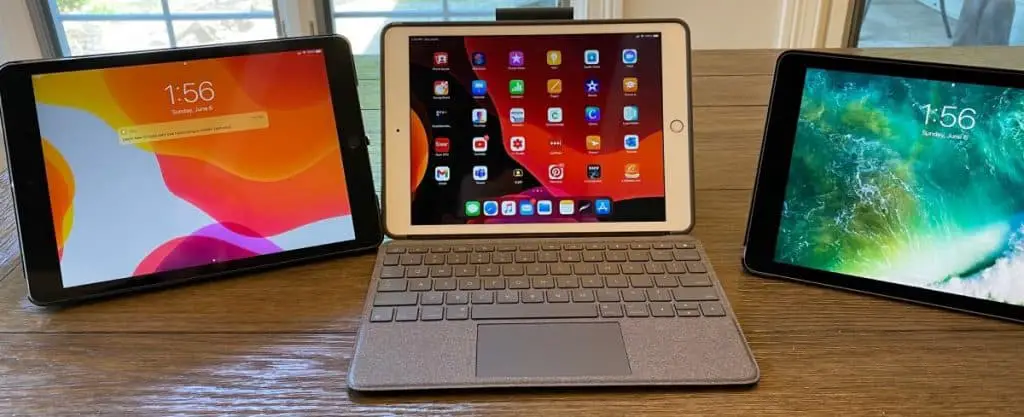
Pros of using a screen protector
Now that you know how screen protectors work, let us now look at the benefits of using a screen protector for your tablet:
1. Fingerprint and dust protection
So, one of the first benefits of using a screen protector is due to how it protects your screen from fingerprints and dust. Even if screen protectors may not be as useful as you might want them to be in terms of completely protecting your tablet’s screen from shatters and scratches, you can at least protect them from fingerprints or dust.
That’s because tablet screens come with a coating that prevents the oils from your fingers as well as dust particles from building up. That means that you won’t end up having visible fingerprints or dust on the screen of your tablet. While this doesn’t do much as far as your tablet’s protection is concerned, it still is better to keep your screen clean from any fingerprints and dust. Of course, it also allows you to minimize having to always wipe your screen.
2. Protects your eyes
Again, this doesn’t benefit your tablet but screen protectors can indeed help protect your eyes from the tablet itself. That’s because tablet screens still have UV rays that may end up damaging your eyes if you have kept yourself exposed to your tablet’s screen for prolonged periods of time. This is the same as when you are in front of a computer all day.
So, in that regard, screen protectors do come with UV ray filters that can filter the harmful rays coming from your tablet’s screen so that your eyes are protected. This isn’t a foolproof kind of protection for your eyes but it still is better than having no protection at all.
3. Reduces glare
Yet again this is another benefit that doesn’t necessarily involve protecting your tablet’s screen. Even if you do recognize that tablet screen protectors don’t always protect the screen itself, they still are great at reducing the glare on your tablet’s screen especially if you do use a screen protector with a matte finish. That’s because such screen protectors are not as reflective as others are.
So, when you are using a good screen protector with glare reduction, it makes using our tablet a more enjoyable experience considering that the glare is reduced and you don’t always have to hide from a direct source of light just to reduce the glare on your tablet’s screen.
4. An extra layer of protection
Screen protectors, depending on the brand and the material, actually really are great at protecting your tablet’s screen from shatters. They are not shatterproof for all intents and purposes but they are great at making sure that your tablet comes with another extra layer that can hopefully protect the screen from getting the brunt of the damage coming from an impact.
For example, if you dropped your tablet screen first, the screen protector takes the brunt of the impact while distributing the shock across the entire screen to reduce the damage at one single point. Your screen protector may end up shattering as a result but it has done its part by taking the brunt of the impact instead of allowing your tablet’s screen from getting damaged as a result.
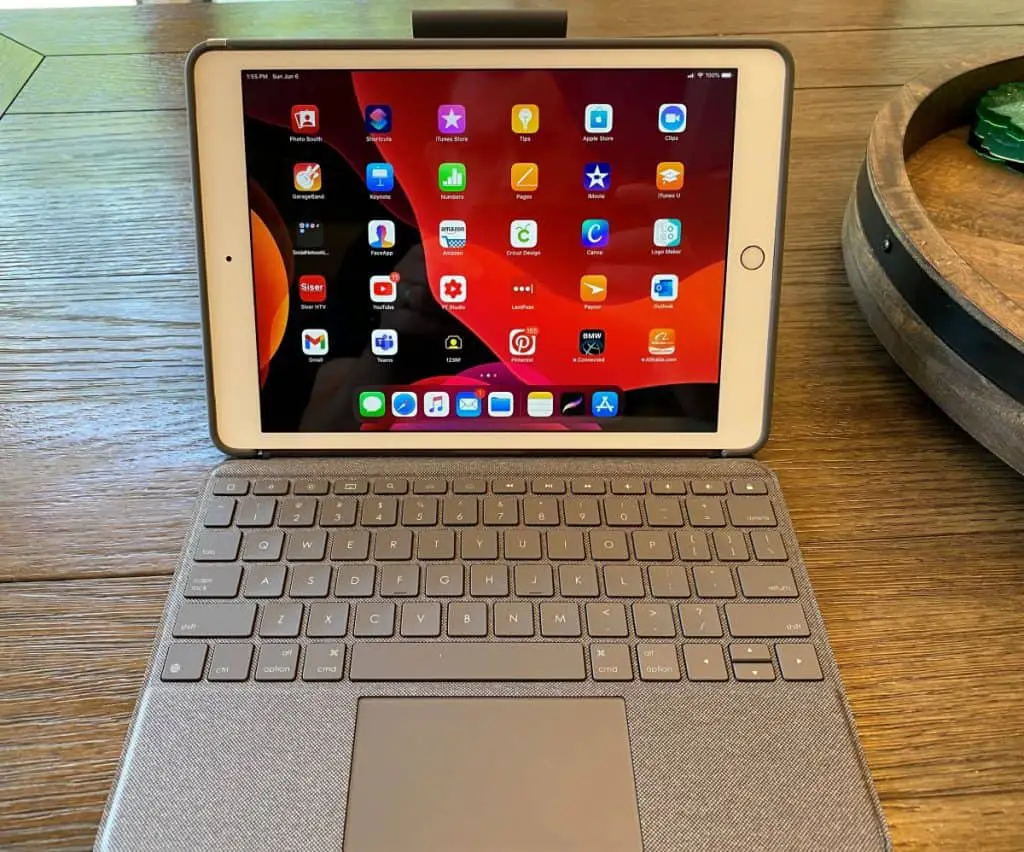
5. Keeps your screen free from bacteria
Even though screen protectors aren’t exactly clean themselves, there are some screen protectors that come with antibacterial properties that can stop the growth of bacteria on your screen. This can be great during a time where we want to make sure that all of our things are as clean as possible due to how we don’t want to end up getting sick.
Meanwhile, even if your screen protector doesn’t come with antibacterial properties, anyone would rather clean a tablet screen using alcohol and other disinfectants when there is a screen protector because you are not technically cleaning the tablet’s screen but only the screen protector. That said, you are basically keeping the tablet’s screen clean without the risk of damaging the actual screen when exposed to disinfectants.
6. Protects the screen from scratches
Scratches are some of the most annoying things that tablet screens can have because of how they make the screen look less appealing. And scratches can come from anything such as your fingernails or the things inside the bag where you placed your tablet. No one wants scratches on their tablets.
That said, using a screen protector can reduce the chances of your tablet’s screen from getting scratched. This is because screen protectors come with a layer of film that is scratch-resistant so that ordinary things such as fingernails, keys, or loose change won’t end up damaging your tablet’s screen.
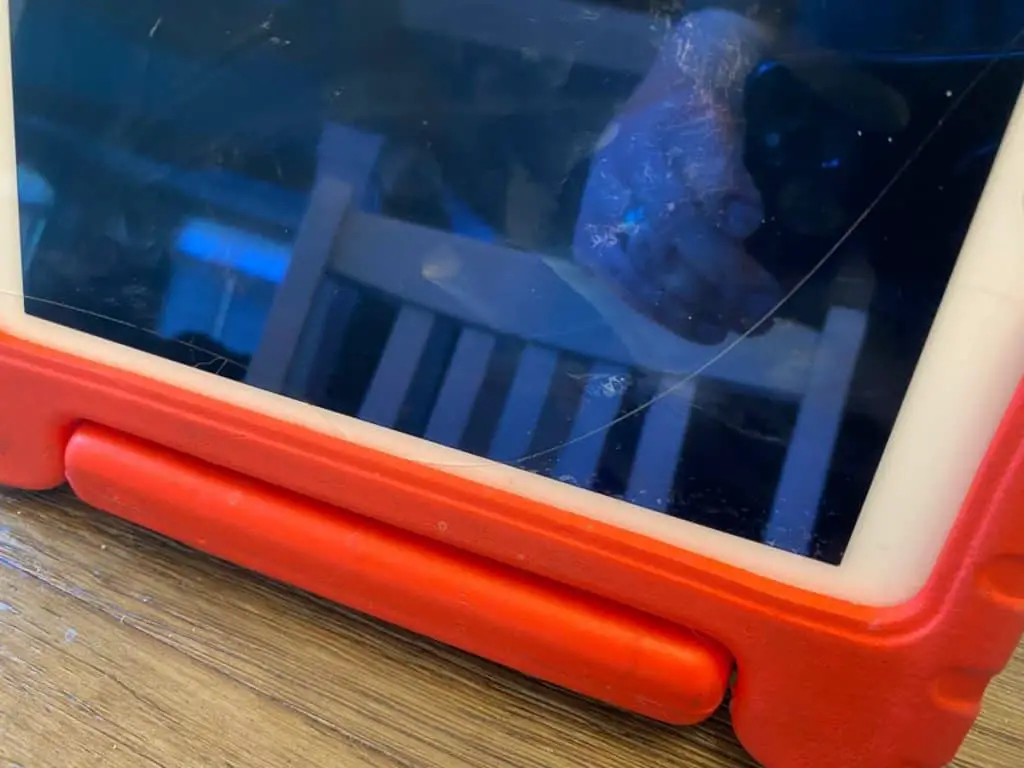
Cons of using a screen protector
Then again, there are still some reasons why you may not want to use a screen protector. That said, here are the cons of having a screen protector on your tablet:
1. They add unnecessary bulk
Some screen protectors really are thicker than most. That means that they can make your tablet a bit bulkier than it should be. While the added bulk shouldn’t be too much of a problem for most people, there are those who would want to keep their screens bare because of how some accessories and cases don’t fit tablets that come with screen protectors.
So, in that sense, the unnecessary bulk is more of a hazard for accessories instead of actually making the tablet heavier and bulkier. Then again, this shouldn’t be a problem if you can find a case that fits a tablet with a screen protector.
2. Gorilla glass is very hard
The glass that tablets use is something we call gorilla glass, which is very tough and may even be tougher than a lot of metals. In fact, the newest formula of gorilla glass allows the screen on your tablet to be very tough such that they are many times tougher than the original gorilla glass used in older tablets.
So, while gorilla glass isn’t the toughest substance out there, it sure is tougher than your keys or your fingernails. That means that, regardless of whether it has a screen protector or not, your tablet’s screen won’t easily get scratched by common things such as keys or loose change.
3. Touch sensitivity can sometimes get affected
Of course, because there is a layer of protection between your tablet and your fingers, you might end up noticing how the touch sensitivity on your tablet’s screen might turn out to be worse due to the screen protector.
But this shouldn’t be too big of a problem if you do find a screen protector that is actually effective enough to the point that it minimizes its effect on the tablet’s touch sensitivity. Meanwhile, cheaper screen protectors might affect your tablet’s screen too much.
4. The screen will look awful over time
As mentioned before, when screen protectors get a bit old and have spent time on your tablet’s screen without getting replaced for years, they will eventually discolor and make your tablet’s screen look dirty. This is something that you don’t want to happen because of how you should always prioritize the quality of experience you get while using your tablet. So, if your tablet’s screen looks dirty due to the discoloration of the screen protector, you might be better off using your tablet bare.
Of course, when the screen protector ends up getting scratches, it produces the same effect in the sense that the tablet’s screen will look awful to look at. This will force you to immediately replace the screen protector just to improve your experience with your tablet.
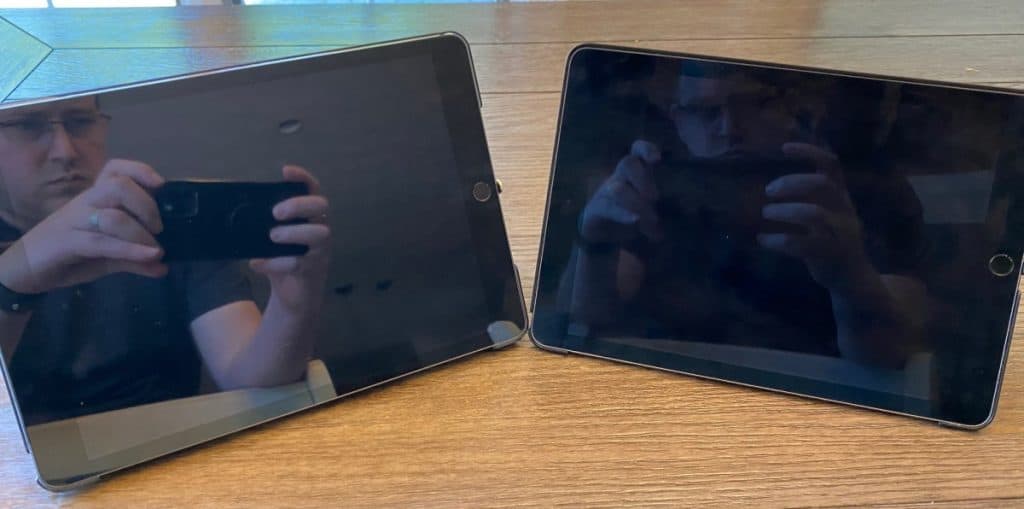
Is a screen protector necessary?
All that said, you might be wondering by now if a screen protector is actually a necessity for your tablet. In that regard, there is no real reason why you are required to get a screen protector for your tablet because your tablet, as long as kept safe and used the right way, has a screen that is already tough enough to handle most kinds of damages.
Still, there is no reason why you shouldn’t get a screen protector especially when you consider that it allows your tablet’s screen to stay in great condition for an extended period of time. Screen protectors are by no means perfect as your tablet’s screen can still get damaged. But, then again, it never hurts to have an extra layer of protection on your tablet’s screen especially if you are planning on selling it in the future.
